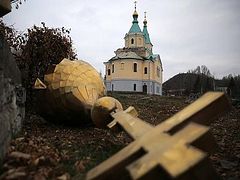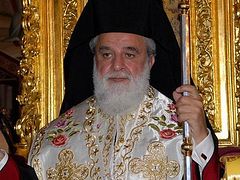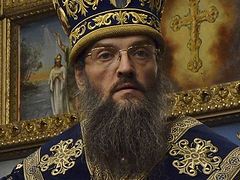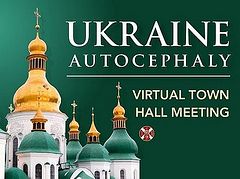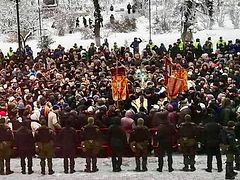Moscow, February 27, 2019
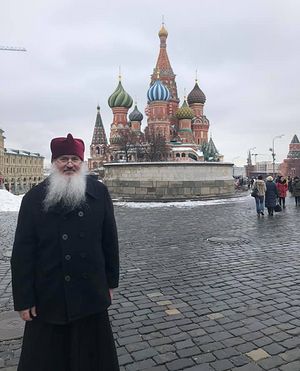 Photo: Facebook The international academic-practical conference “Causes and Challenges of the Present Crisis in Inter-Orthodox Relations,” dedicated to discussing the crisis arising from the non-canonical actions of the Patriarchate of Constantinople in Ukraine opened at St. Tikhon’s Orthodox University for the Humanities in Moscow on Monday, reports the press service of the Russian Orthodox Church.
Photo: Facebook The international academic-practical conference “Causes and Challenges of the Present Crisis in Inter-Orthodox Relations,” dedicated to discussing the crisis arising from the non-canonical actions of the Patriarchate of Constantinople in Ukraine opened at St. Tikhon’s Orthodox University for the Humanities in Moscow on Monday, reports the press service of the Russian Orthodox Church.
The conference gathered presenters from Russia, Bulgaria, and Bosnia and Herzegovina. Two monks from Mt. Athos were unable to attend at the last minute but sent their presentation to be read.
And offering “A Look at the Church Division from the USA” was the well-known Archpriest John Whiteford of St. Jonah Orthodox Church (Russian Orthodox Church Outside of Russia) in Spring, Texas, who was invited because his articles are also known and read in Russia.
The conference began with the Divine Liturgy in the Church of St. Vladimir in the Moscow Diocesan House, where the great Local Council of 1917-1918 was held that gathered more than 40 hierarchs and clergymen who went on to join the ranks of the New Martyrs and Confessors of Russia.
The conference was then opened by His Eminence Archbishop Ambrose of Verey, the rector of the Moscow Theological Academy, who noted that the crisis arising from the actions of the Patriarchate of Constantinople is about more than just the question of autocephaly in Ukraine, but of canon law, the relations of the Local Churches, and the role of the Ecumenical Patriarchate.
The discussion of these issues from different angles in the various Local Churches contributes to the gradual emergence of a consensus, Abp. Ambrose said, but “the well-known events push everyone to resolve this issue as soon as possible.”
The first session of the conference was dedicated to a theological analysis of the Church crisis and included presentations focusing on ecclesiology, the context of Church events in Ukraine, and the primacy of Constantinople.
The second session was dedicated to views on the Church crisis from abroad, during which Fr. John offered his presentation.
The third session was dedicated to the historical side of the crisis in Ukraine and included presentations on defending the unity of the Russian Church, schisms in Ukraine over the past century, and the Constantinople-Renovationist fight against the Russian Church.
“I talked about why people in America care about what’s going on, how it affects us. For example, I pointed out that in some ways it affects us more than it does people in Russia. Obviously the people in Ukraine are the most affected, but outside of Ukraine, they don’t have Ecumenical Patriarchate parishes around them and people that they’ve had relations with and families that straddle parishes and are connected to both that suddenly find themselves not in communion anymore,” Fr. John said of his presentation in an interview with OrthoChristian.
“That’s a problem that we have. It also affects our witness,” he added.
“Ever since I became Orthodox one of the big things I’ve been concerned with is trying to bring people into the Church. You can’t bring people into the Church as easily now when it’s harder to explain what Orthodoxy is,” giving the poor relations between the two most visible branches of the Orthodox Church.
“The waters have been muddied, and over something that has no basis in the canons or traditions. It’s just a power grab,” Fr. John lamented.
Fr. John also noted that he received some positive comments after his talk and that it seems to have been well received.
Follow us on Facebook!

